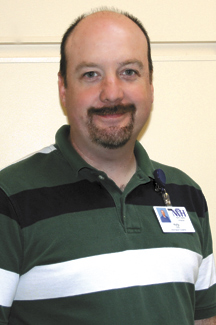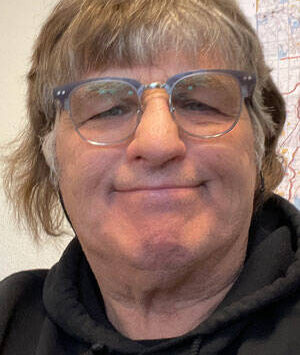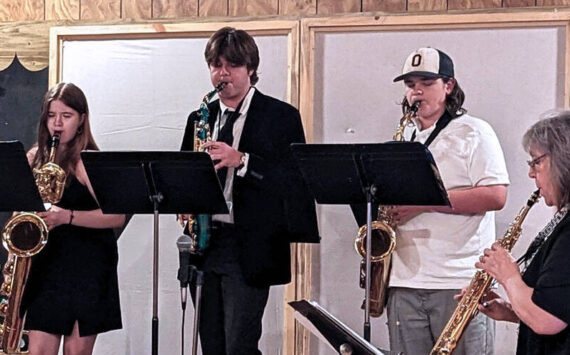

Kelly Cariker
TONASKET – The digital age has a much different set of demands than did the age of paper and photographic negatives. With those ever-increasing requirements come job responsibilities that were undreamed of just a decade ago.
Seeing that those demands are met effectively and systematically at North Valley Hospital is the job of Kelly Cariker, who began his tenure as NVH’s Chief Information Officer in early April.
Not only is Cariker new to NVH, but so is the position. Cariker is in charge of managing the hospital’s technology and data.
“Basically,” Cariker said, “if it uses electricity and it’s not a light on the wall or something taken care of by Maintenance, it’s my responsibility.”
That includes everything from the computer systems to nurse call to printers, servers, networks, and electronic medical records.
“Health care and the electronic medical record is very complex with what happens behind the scenes,” Cariker said. “It’s a lot more complex than the old paper chart. There’s a lot that needs to happen behind the scenes for seamless health care. Even getting different systems to talk to one another … getting data to move between facilities, there needs to be a lot of work.”
Cariker said he hit the ground running.
“These first couple weeks I’ve been meeting everybody, finding out what systems are already in place, and coming up with an overall vision and timeline,” he said. “We have a duty because we’re taxpayer based, our job is to do the most with the least amount of money.
“In small health care you can move fast in the market, but you can’t afford to make a mistake. You have to know where you’re going and you have to know that the systems work, because you can’t afford to do anything twice.”
Security, obviously, is a paramount concern for anyone in Cariker’s position. He said that maintaining and upgrading systems in the health care field has its own unique set of challenges.
“It’s almost bank-level security, but health care systems are up 24/7, 365 days a year,” he said. “You can’t just shut the system off to make changes or upgrades.
“We need extreme reliability because we’re dealing with people’s lives. It is possible to fall back to paper if there is a problem, but any time that happens we’re not delivering the best patient care.”
Part of that also means maintaining a network with outside facilities.
“The hospitals up and down the valley all the way to Wenatchee are connected on a private medical network,” Cariker said. “We use it for pushing data, such as radiology images when we don’t have someone here on site, they can be read down there. If someone comes into ER and they need a scan, it can be read in real time just like it was someone who was sitting here in the hospital.”
Cariker spent the last 11 years working as the Information Systems Manager at Mid-Valley Hospital in Omak. Just three weeks after taking his first job there in 2001, his boss left to take another job, leaving Cariker in charge of the fledgeling department.
During his tenure MVH expanded from 25 computers and a couple of servers to 150 computers and 14 servers. Quality, as well as quantity, marked Cariker’s career there as the hospital received national recognition for technology in rural health care, including a top 20 ranking the last three years out of 2,500 hospitals evaluated by an American Hospital Association journal.
“It’s cool to win an award like that, but mainly it’s a good tool to see where we are in the marketplace,” Cariker said. “I’m hoping in the next couple of years we’ll get North Valley Hospital on the list.”
If the name Cariker seems familiar, it’s because there has been at least one family member working at North Valley Hospital since 1977. After his family moved from California to Tonasket in 1977, Cariker’s grandmother, Alta Biggs, worked as a bookkeeper there for about five years. Cariker’s father Terry worked in maintenance from 1982 until December of last year.
Cariker, a Tonasket High School graduate, is married to Nattalie, with young children Killian and Nattalyn.
“There’s never a dull moment,” he said of his job. “Every day is different. Some nights it means being up til 3 a.m. sweating bullets, because I know that doctors and patients are relying on these systems. It’s a rewarding job because I know I’m making a difference. It may not be on the front line delivering health care to patients, but I know that what I do makes a difference to the people that are.”




